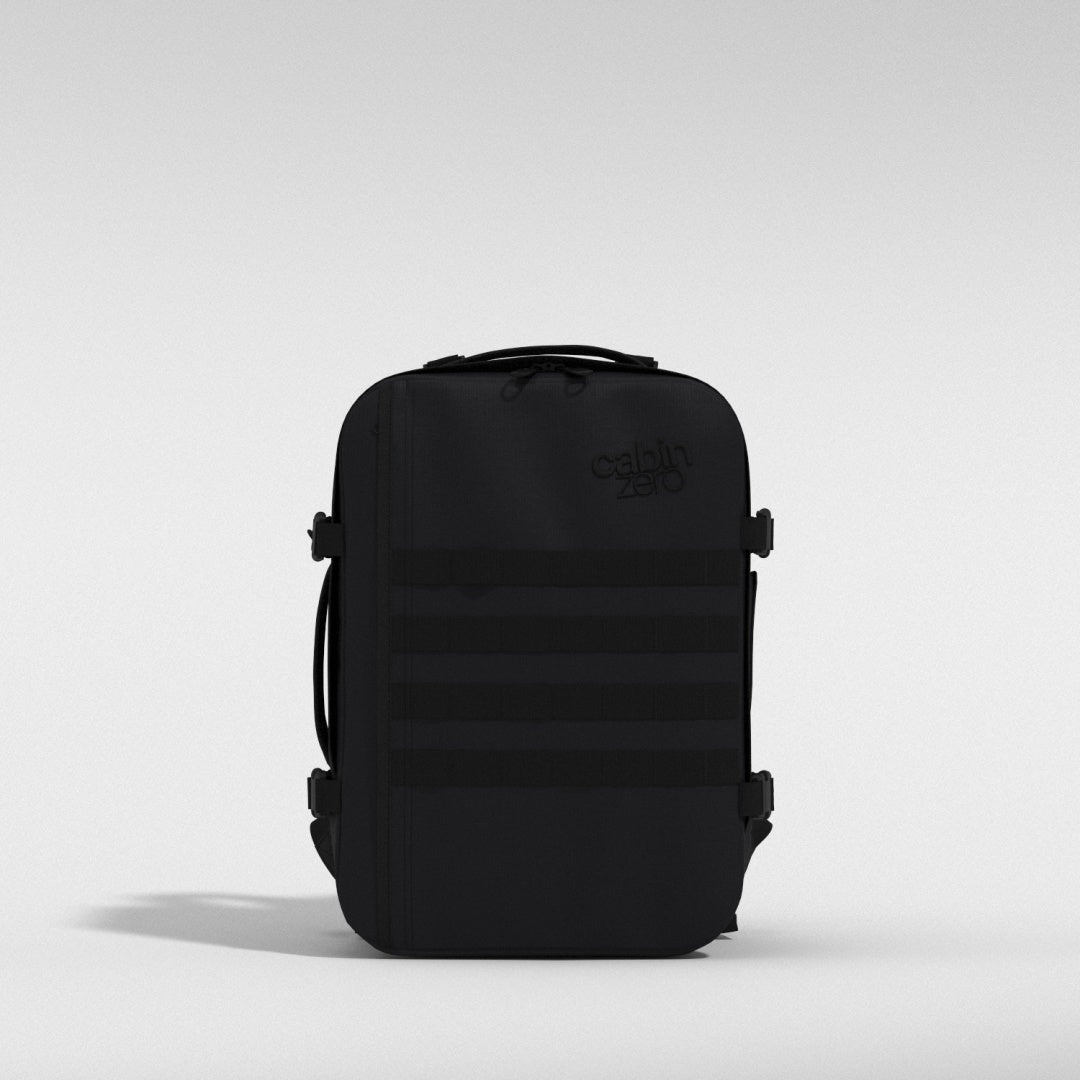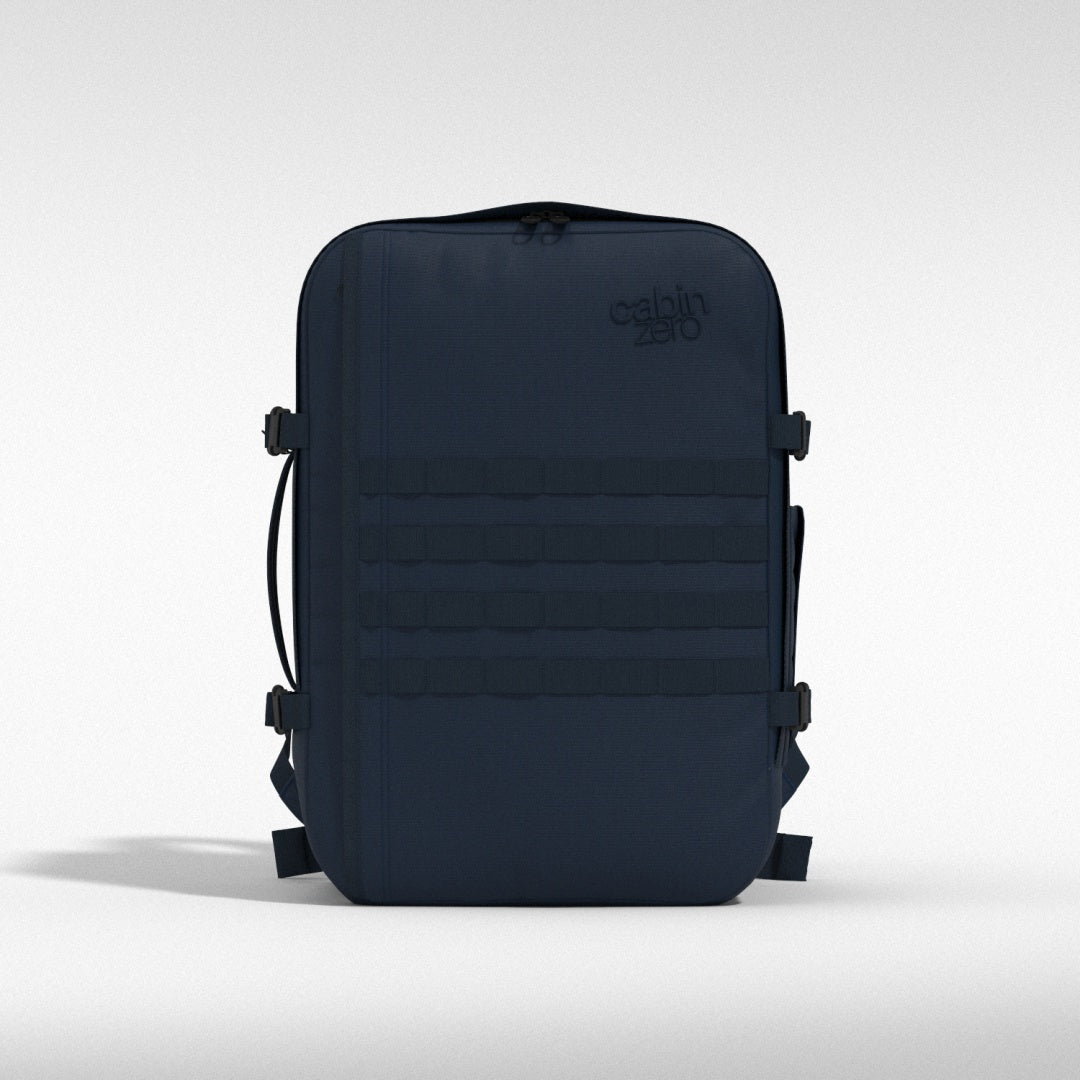CONTENTS
United Kingdom Entry Requirements - 2025 Updated Guide
United Kingdom entry requirements, including COVID-19 updates, visa requirements, and customs regulations, can be overwhelming for first-time visitors to the UK.
The UK is a wonderful destination that attracts travellers from around the world for various reasons. For example, there are plenty of fun things to do in Manchester - the musical capital of the UK and many wonderful places to visit in Wales - the land of castles.
Entering the UK requires travellers to have identity documents, and depending on your nationality, the requirements differ. This article aims to help you with everything you should know before travelling to the UK, from the latest entry requirements to useful guides at UK airports and border control. Here is what you should know:
Useful resources:
- Official UK Government website for the Passenger Locator Form
- Frequently Asked Questions
- Travel Advice for specific countries
- Travel to England from another country during the coronavirus (COVID-19)
- Before you leave for the UK
- Check if you need a visa to visit the UK
- Travelling to the UK as an EU, EEA or Swiss citizen
- UK Visa Application Services
- Foreign Travel Advice by Country
UK Entry Requirements: COVID 2024

Before travelling, double-check on entry requirements regarding COVID-19. Photo by Kzenon on stock.adobe.com
UK vaccine requirements regarding COVID-19 in 2024 are non-compulsory. There are currently no COVID-19 restrictions for entering the UK. However, it is suggested that travellers who currently have COVID should stay at home and avoid travelling to reduce the spread of the virus.
- Regarding filling out the UK Passenger Locator form, travellers do not have to complete the form when travelling to the UK from another country.
- Regarding testing and quarantine, both are not required for travellers who enter the UK. Most free COVID-19 tests are not available for travellers. If you suspect that you have COVID while staying in the UK, you can purchase test kits in shops.
For more support regarding health conditions in the UK, travellers can visit the NHS website (also known as the "National Health Service") to find a pharmacy, emergency care, general practitioner, and more.
COVID-19 is easily spread through close contact with people who have the virus. Therefore, travellers are recommended to practise the following precautions to avoid catching the virus while travelling:
- Do get fully vaccinated
- Do wash your hands with soap or use hand sanitiser before eating, after coughing and sneezing and after touching regularly touched surfaces in public spaces such as door handles
- Do cover your mouth if you need to cough or sneeze
- Do consider wearing a mask in crowded places where you are expected to be in close contact with people.
Travel Documents Required When Entering the UK

London is one of the most popular destinations in the UK for travellers around the world to visit. Photo by alice_photo on stock.adobe.com
You are recommended to check all entry requirements in advance, whether you are visiting or transiting in the UK. It is necessary that you check for the latest updates on official sources such as the official website of the UK government.
As always, booking a consultation with relevant authorities such as the British embassy or consulate before finalising your travel details is useful for travellers. Now, let's start reviewing essential information regarding UK entry requirements with this detailed guide.
For British and Irish Citizens
- For British citizens, travellers can enter the UK with one of these two identity documents: a passport or a Gibraltar identity card.
- For British citizens who travel from Ireland to Northern Ireland, there are no documents required.
- For British citizens who travel from Ireland to England, Wales or Scotland, travellers can use one of the following documents to enter the UK: a passport (current or expired); a UK citizenship certificate; a Gibraltar identity card (current or expired); or a clear copy of passport or Gibraltar identity card.
- For Irish citizens who travel from Ireland to England, Wales or Scotland, travellers can use one of these following documents to enter the UK: a passport (current or expired); proof of Irish citizenship (e.g. a certificate of naturalisation); an Irish passport card (current or expired); or a clear copy of passport or Irish passport card.
Note: While expired passports and IDs can be used, please ensure they are recent enough for identification purposes. As they stated, “recent enough that it’s clear that it’s yours.”
For EU Citizens
For citizens from the EU, Liechtenstein, Switzerland, Iceland and Norway, travellers can enter the UK with one of the following documents: a passport; an Irish passport cardl or a national identity card issued by one of the EU countries, Liechtenstein, Switzerland, Iceland or Norway. It is highly important that you check if you need a UK visa for your specific case before visiting.
For Non-EU Citizens
For citizens from non-EU countries, travellers must have valid passports (valid for the entire stay) to enter the UK. Depending on your nationality, you might need a UK visa to enter.
Travellers can easily check for visa requirements on the official website of the UK government. According to the U.S. Department of State, the UK entry requirements for U.S. citizens are valid passports with at least one blank passport page for stays that are less than six months.
UK entry requirements regarding passport validity are that your passport must remain valid for your entire stay. The expiry date should be at least 6 months, starting from the day that you plan to arrive in the UK.
It is helpful to note that officials in UK Border Control might ask travellers for proof of onward ticket or return ticket as well as proof of sufficient funds.
For travellers who were previously refused by the UK Border officials, entry clearance might be required before entering and contacting the British embassy or consulate.
Visa and Electronic Travel Authorisation
To enter the United Kingdom, you will need a visa. Depending on your nationality, you can either apply for a visitor visa three months before your travel date or be able to visit without a visa and stay for six months. You can look up your nationality beforehand.
For visitors who do not need a short-stay visa, an Electronic Travel Authorisation will be required. Travellers are recommended to check the ETA scheme by the end of 2024. Travellers from the EU, Switzerland and EEA might be eligible to travel to the United Kingdom with a passport and without a visa.
- Visitors from Qatar have been able to get ETA since November 2023.
- Currently, only nationals of Bahrain, Jordan, Kuwait, Oman, Saudi Arabia, and the United Arab Emirates can apply for an ETA beginning 1 February 2024. This will be extended to all visa-exempt visitors by the end of 2024.
- UK and Irish citizens, as well as those with certain other immigration statuses, do not need an ETA.
- The application costs £10 and requires basic biographical and travel information.
Update on 2025: The UK government website states that "You do not need an ETA to transit through the UK if you will not pass through border control (‘airside’ transit)." That means you do not need an ETA if you have a layover in the UK and not leaving the airport.
Items You Can Bring To the UK

You have to declare certain goods to customs before entering the UK. Photo by Darren Baker on stock.adobe.com
On one hand, having an international travel checklist is helpful before taking a trip to a foreign country. This can help you determine which items are essential and which types of clothing are suitable for the local weather as well as your planned activities.
On the other hand, knowing what you can legally bring through customs is a must to ensure a smooth travelling experience, especially at the border. Here is what you should know about items to bring to the UK.
Items To Declare To Customs
Before your trip to the UK, you should declare goods online in advance, starting from 120 hours (5 days) before the arrival date. You must declare goods in the following situations:
- When you go over the personal allowances approved for Great Britain or Northern Ireland
- When you carry banned or restricted items listed by the UK Border Force
- When you plan to sell or use items in a business
Banned And Restricted Items In the UK
If you bring banned or restricted goods into the UK against the law, they will be seized by the UK Border Force. It is helpful to always check the official guide on UK customs' policies regarding imported goods before bringing items into the UK. Here is what you should know about banned and restricted goods in the UK.
Banned goods that travellers cannot bring into the UK include:
- Controlled drugs such as heroin, cocaine, cannabis, MDMA (Ecstasy), amphetamine, methamphetamine and barbiturates
- Offensive weapons such as butterfly knives, push daggers, self-defence sprays, stealth knives and electric shock devices. Firearms and replica firearms require licences and permits or are otherwise banned
- Endangered animals and plants, as well as goods made from them, such as ivory, caviar, coral and crocodile or alligator skin
- Rough diamonds that are uncut and unpolished without a valid certificate
- Indecent materials such as books, videos, magazines or software featuring children, extreme violence and pornography that are illegal in the UK
- Meat and dairy products from non-EU countries
Restricted items that travellers cannot bring into the UK are as follows:
- Firearms, ammunition and explosives (unless there are special licences available)
- Food and plant products that are not free from pests and diseases, not for personal use and were not grown in the EU
- Items that are suspected of violating intellectual property rights (e.g. pirate copies of music and movies)
- Items protected by the Convention on International Trade in Endangered Species of Wild Fauna and Flora (also known as "CITES") such as certain exotic leather goods or furs, foods and beauty products and medicines
What Do They Check At UK Border Control?

It is important to ensure that you have a valid UK visa, if required, to enter the UK. Photo by Richie Chan on stock.adobe.com
Going through border control is a crucial step for travellers who are entering the UK. The first and most important step is to make sure your travel documents are ready. If you are wearing sunglasses or a mask, you need to remove them at border control.
If you are travelling as a family, you should go through passport control together. UK passport control questions are usually about the reasons for your visit to the UK. Travellers do not need to fill in landing cards (also known as "arrival cards") when entering the UK.
Entering UK Passport Control
For quick entry, travellers can use eGates, which are automated self-serving options that are used for passport control. It is important to note that travellers who use ID cards as identity documents cannot use eGates. For your reference, eGates are available in the following ports:
- Birmingham
- East Midlands
- London City
- Luton
- Stansted
- Heathrow
- Edinburgh
- Glasgow
- Manchester
- Newcastle
- Bristol
- Cardiff
- Gatwick Airport
- Eurostar terminals in Brussels-Midi/Zuid
- Paris Gare Du Nord.
Wonder if you can use eGates? The answer is likely yes if you meet the following criteria:
- Nationality: You are a citizen of the UK, EU, Australia, Canada, Japan, Iceland, Liechtenstein, New Zealand, Norway, Singapore, South Korea, Switzerland and the USA.
- Age: Those above the age of 10 can use eGates. Children aged between 10 and 17 must be accompanied by an adult.
- Travel documents: if your passport has a biometric chip. Again, if you travel with ID cards, you can’t use the eGates.
Getting Passport Stamp By Border Force Officers
For non-visa travellers who wish to visit the UK as tourists on arrival, the Border Force officers will endorse their passports with entry stamps. This is to confirm the date of arrival and the port of arrival.
Visitors who are on short-term assignments with a Creative Worker Visa; who are in the UK to carry out Permitted Paid Engagement; and who are applying for an EU Settlement Scheme Family Permit need to get their passports stamped as well.
Getting Through Passport Control Faster
If you prefer to pay an additional fee to speed up the checking time during passport control at UK airports, there are FastTrack services available in the following airports: Gatwick, Stansted, Manchester, Edinburgh, Birmingham and East Midlands. Travellers should note that the actual costs vary by airport. You can find the details of FastTrack services on the official airport websites.
Requirements When Transiting Through UK Airport

Passengers who are transiting flights through UK airports need to check whether a UK visa is applicable or not. Photo by Svitlana on stock.adobe.com
When transiting or layover through a UK airport, travellers might need to have a UK visa. It is useful to note that there are two types of transiting, namely "airside" and "landside".
If you are going through border control and expect to leave the United Kingdom within 48 hours, you need to apply for a visitor transit visa. This is applicable to travellers who change flights in the United Kingdom on the way to another country and are not working or studying during their stay in the United Kingdom.
If you are not going through border control, you can apply for a direct airside transit visa. This is applicable for travellers who change flights in the United Kingdom only. If you expect to stay in the United Kingdom for more than 48 hours, you need to apply for a standard visitor visa.
- Airside transiting is when travellers do not go through UK border control before getting on their connecting flights.
- Landside transiting is when travellers go through UK border control and then come back and leave the UK within a short period of time. Usually, travellers who transit in the UK under landside type enter and leave the country within 24 hours.
If you are still confused with the entry requirements when transiting through a UK airport, you can check if you need a UK visa for your online transit.
British Airways: The Best Airlines To UK
British Airways is consistently listed as one of the best airlines in the world for various reasons. Here are compelling reasons why British Airways is considered by many passengers to be among the best airlines in the UK.
About British Airways
British Airways (also known as "BA") is a global airline with over 100 years of history and over 30,000 employees around the world. The airline's main hub is located at London Heathrow Airport, and its fleet includes a diverse range of aircraft, from short-haul planes to long-haul ones.
With an extensive global network of international routes, British Airways serves over 170 destinations across 6 continents. British Airways is a proud member of the International Airlines Group (also known as "IAG"), a pristine group in the aviation industry with 5 airlines, including British Airways, Iberia, Aer Lingus, Vueling and LEVEL.

British Airways is the flag carrier airline of the United Kingdom. Photo by Mateusz on stock.adobe.com
Key Highlights Of British Airways
British Airways has been implementing a number of sustainability initiatives, such as BA Better World. With its commitment to building a more sustainable future, the airline is committed to reducing its impact on the planet by aiming to achieve zero carbon emissions by 2050. British Airways is committed to building an inclusive and diverse workplace for everyone to be able to thrive.
Known as the second largest carrier that is UK-based, British Airways is a member of Oneworld - the famous global airline alliance and is also the flag carrier airline of the United Kingdom.
British Airways is also a technology-focused airline with innovative implementations of technology. By 2019, the majority of aircraft under British Airways were fitted with WiFi.
Bookings can be managed by passengers through the BA app and the British Airways Executive Club app. Out of the U.S., British Airways was the first European airline to use biometric technology to shorten the boarding processes in London, New York, Los Angeles and Orlando.
Reasons To Love British Airways
Passengers love British Airways for various reasons. One of the reasons is the premium business class called Club World, which offers excellent comfort and world-class service to passengers on long-haul flights. The airline has invested over £600m for this long-haul business class to ensure the finest choices, from amenity kits to luxurious bedding and comfortable Club Suite seats.
Punctuality matters. And British Airways has been striving to be punctual for every flight. Among large carriers for short-haul flights, British Airways has the best punctuality record applying for flights departing from London.
The standard checked baggage allowance for British Airways is 23kg for each bag. Depending on your ticket type, you can travel with one checked bag and one handbag.
Travel with a cabin bag designed by CabinZero specifically for British Airways passengers to travel with ease and be in style while staying practical.
FAQs

Prepare in advance to answer common passport control questions at border customs with confidence. Photo by Spencer Davis on Unsplash
1. Can EU Citizens Travel To The UK With An ID card?
EU citizens cannot use ID cards to enter the UK. Unless travellers are qualified for one of these cases, in which they can use ID cards to travel to the UK until at least 31 December 2025:
- Have either a settled or pre-settled status under the EU Settlement Scheme, Jersey Settlement Scheme, Guernsey Settlement Scheme or the Isle of Man's Settlement Scheme
- Have an approved EU Settlement Scheme family permit or an equivalent from either Jersey, Guernsey or the Isle of Man
- Are a qualified S2 Healthcare Visitor
- Have a frontier worker permit
- Are a Swiss national with a service provider from Switzerland visa.
To pass through border control faster, travellers are recommended to use passports as their travel documents rather than ID cards. The reasons are passports can be processed faster by Border Force officers, and EU passports can be used at eGates.
2. Can Border Control See Travel History In The UK?
When applying for UK visas, travellers are required to provide information regarding their travel history. Depending on what type of visa you are applying for, different details about your travel history will be requested. For example, the UK border control might require travellers to declare all the countries that they visited over the past ten years with entry and exit dates.
3. What Are Some UK Passport Control Questions?
Travellers should expect to be asked questions while passing through border customs in the UK. For a smooth entry process, you should prepare in advance to answer passport control questions with ease and confidence. Common questions that are asked include:
- Are you travelling alone?
- Where are you flying in from?
- Have you ever visited the UK?
- How long will you be staying?
- Do you have anything to declare?
4. What Should I Bring With Me When Travelling To The UK with Children?
Travellers who travel with a minor and appear not to be the child's parent are often questioned by Border Force officers. Here are what you can bring to show your proof of relationship with the child:
- If you travel with a child under the age of 18, you should bring a birth certificate or adoption certificate to show Border Force officers your relationship with the child.
- If you are the child's parent but have a different family name, you should bring a marriage certificate or a divorce certificate.
- If you are not the child's parent, you should also bring a letter written from the child's parent to show Border Force officers that you have been given authority to travel with the child.
Everything You Need To Know About United Kingdom Entry Requirements In 2025
By knowing the latest United Kingdom entry requirements, you can travel with peace of mind knowing that you have all the most up-to-date information from authorised government sources. Having the correct required documents and adhering to the entry regulations will help travellers avoid entry denial and enjoy a smooth entry process to the UK.
Are you planning a trip to the UK? Share with us your experience and send this guide to your fellow travellers for a stress-free trip to the UK.
Chau Dao














I am a Nigerian living in Dubai and I am planning of traveling to the uk but I don’t know the requirements and travel Instructions basically for my nationality
Can you help me with little information pls? And also, a good source to help me with my paper clearance.
Thank you
Very helpful info
Leave a comment